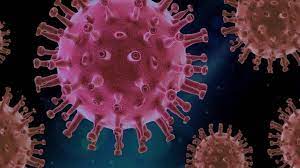A teenage girl in India has died from a “brain-swelling” bat virus mere days after the United States ended its emergency bird flu response. Experts fear that this virus could become the next pandemic should it be shown to transmit between humans.
Bats are natural reservoirs for a wide range of microorganisms, including some that have previously been transmitted to humans.
The Nipah virus is carried by fruit bats (Rousettus leschenaulti) and can be transmitted to humans if they live in close proximity, being transmitted through their droppings and saliva. The virus belongs to the same viral family as measles, making it highly contagious, according to a report by The Guardian.
In 2018, India experienced an outbreak of Nipah, which sparked global concern. Outbreaks of the virus occur annually in Asia, including Bangladesh and India.
GLOBAL CONCERNS: Rare Nipah Virus Continues To Kill People In India
The anonymous woman experienced horrific symptoms. She suffered from acute encephalitis syndrome (AES), which is inflammation of the brain. This is often accompanied by an onset of fever and neurological symptoms. The woman is still alive and is undergoing treatment at the private hospital in Perinthalmanna.
So far, 425 people across three districts have been identified as contacts of the two women, and they all may have come into contact with her at a social event. Of these people, 12 in Malappuram are receiving treatment, including five in intensive care. Health authorities are still awaiting full test results to determine the number of people who may be infected.
The Centers for Disease Control and Prevention said that around 40%–70% of people who contract Nipah will die.
Nipah was first discovered in 1999 following an outbreak in pigs and people in Malaysia and Singapore. Three hundred people got sick, and more than one hundred of those people died. In this first outbreak, bats initially spread the Nipah virus to pigs. People who worked closely with the infected pigs also became ill, according to the CDC’s website.
Last month, researchers discovered two new viruses that are closely related to both Nipah and the deadly Hendra virus.
Next Plandemic? Drug-Resistant BAT-HUMAN HYBRID FLU Engineered by NIH-funded Researchers
Not long ago, S.D. Wells of Natural News raised concerns about this virus. It was researched with funding provided by the NIH’s NIAID. It was combined to create a new hybrid virus using gain-of-function research, which could spark ethical concerns.
A new peer-reviewed study published June 18, 2025, in Pathogens has revealed that scientists funded by the U.S. National Institutes of Health (NIH) have genetically engineered novel hybrid influenza viruses combining bat and human virus components. The research, conducted at the University of Missouri and partially funded by the NIH’s National Institute of Allergy and Infectious Diseases (NIAID), raises significant public health and biosecurity concerns. –Natural News
What do you think? Is it just me, or is this painfully convenient timing with the U.S. ending the bird flu scamdemic before they could get it off the ground? Or is it just a coincidence?






0 Comments